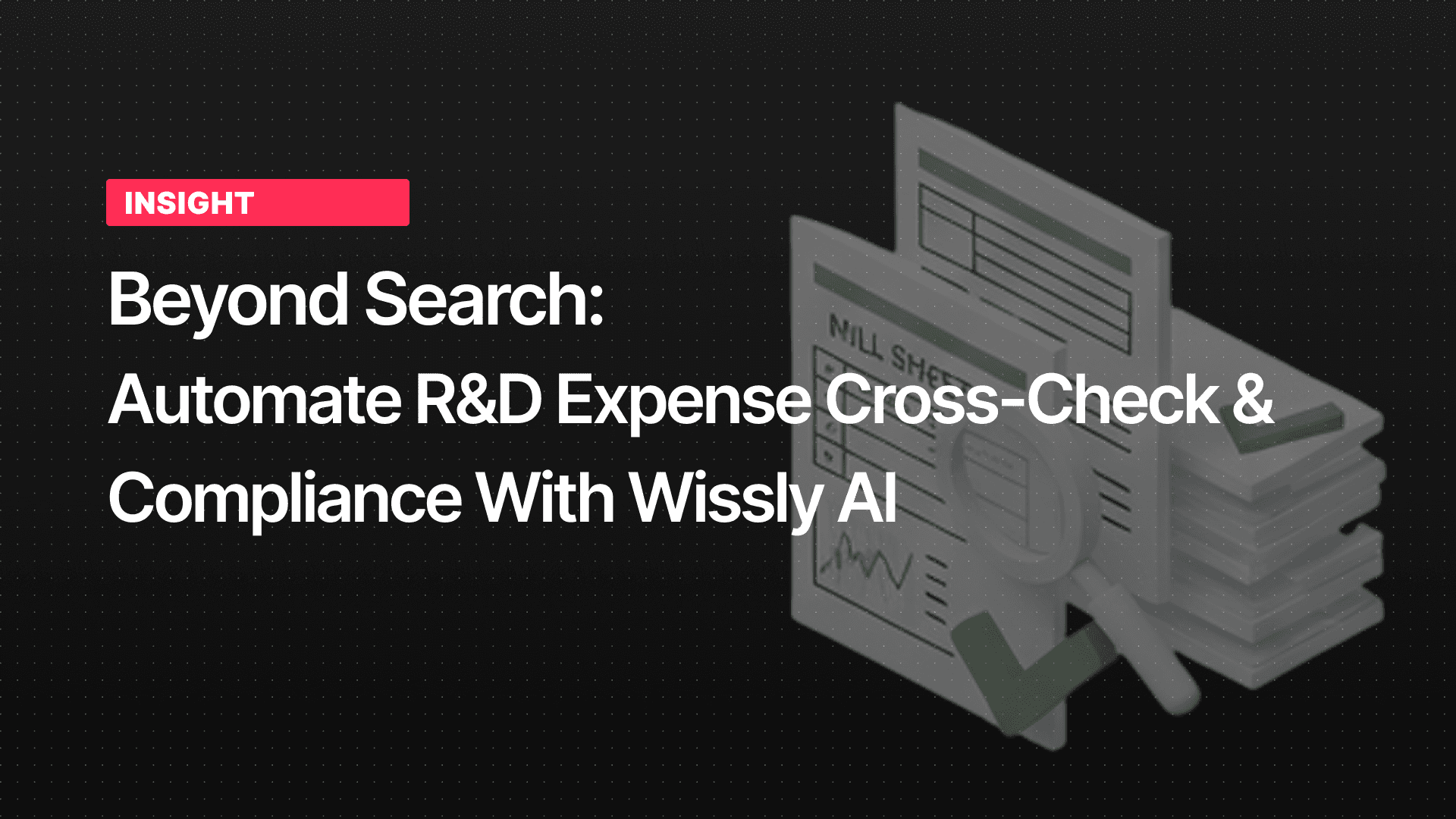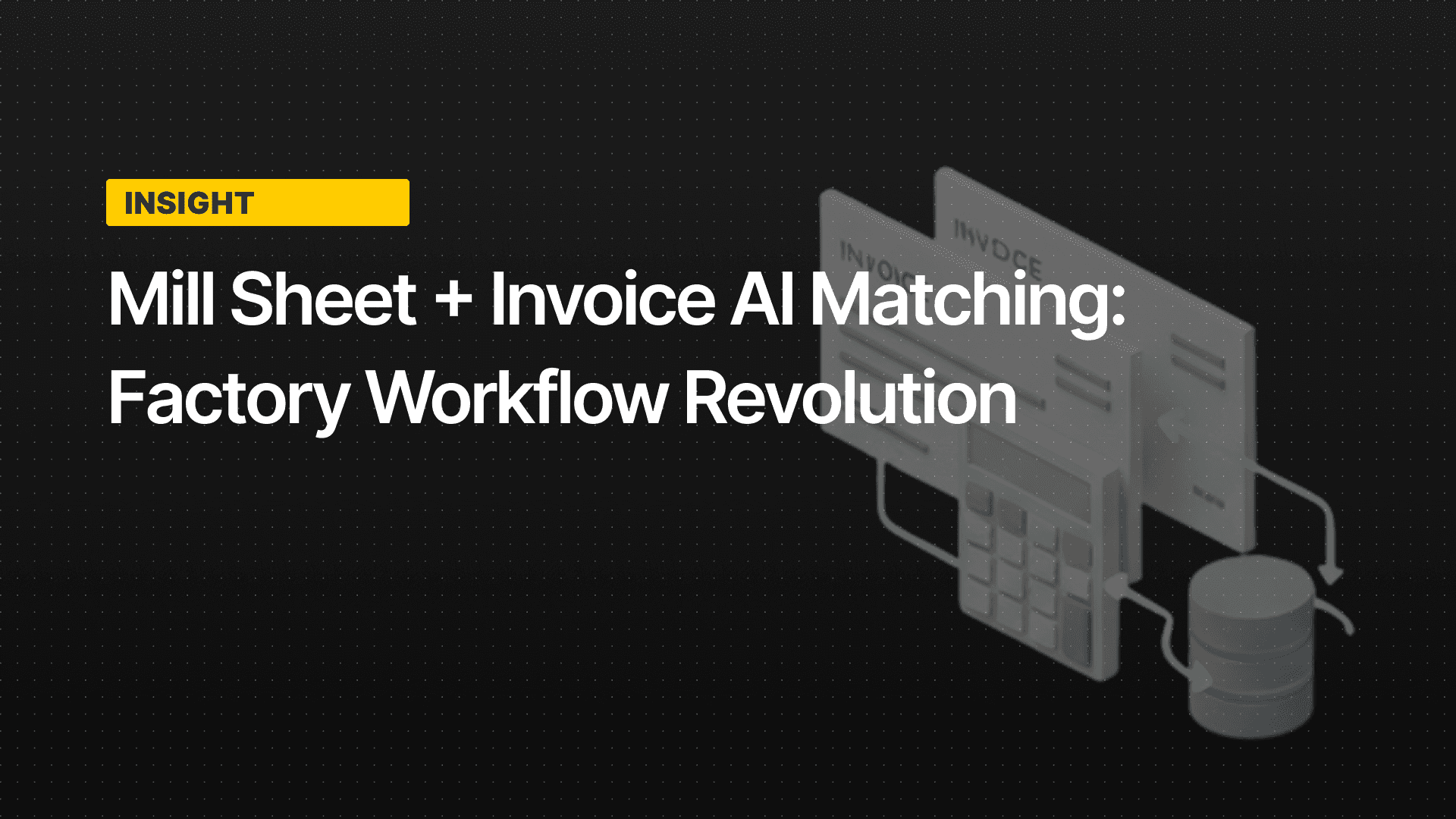Insight
What is AI-Powered Information Retrieval? Definition, Core Technologies, and Enterprise Use Cases
Oct 24, 2025
What is AI Information Retrieval?
The Evolution from Keyword Search to Semantic Search
AI information retrieval moves beyond traditional keyword search, which simply finds documents containing the same words as the user’s input. Instead, it leverages advanced technology to understand the user’s intent and the context behind each question, surfacing only the most relevant information. Whereas conventional search focuses on "word matching," semantic search considers the meaning of sentences, user circumstances, and even the background of a query, delivering results that are dramatically more accurate. This shift is vital in today’s information-heavy business environments, where minimizing noise and pinpointing true knowledge is critical for efficiency.
Intent-Centric Query Processing
Modern AI-powered search systems utilize natural language processing (NLP) and large language models to interpret user queries and understand the underlying "intent." For example, if a user types, “Show me last quarter’s sales summary report,” the system accurately comprehends the natural phrasing and retrieves the right documents. These AI systems also understand the work context, the search purpose, and even maintain the continuity of follow-up questions, adapting to the flow of conversation.
The Convergence of Search and Generative AI (RAG)
A new wave of AI search—Retrieval-Augmented Generation (RAG)—combines powerful retrieval with generative AI. RAG first “retrieves” supporting information from vast document repositories and then “generates” new, concise, and context-aware responses such as summaries or answers, always citing the source. This goes far beyond simply listing matching results; RAG delivers trustworthy answers, complete with relevant document references, enhancing reliability and compliance.
Core Technology Components
Natural Language Understanding (NLU): Decoding Query Intent and Language Variations
NLU technology enables the system to grasp the true meaning of user queries, regardless of terminology or expression. It recognizes synonyms, business jargon, and industry-specific phrases, ensuring consistent answers to similar questions—even when phrased differently. This enables organizations to extract crucial data from complex documents, reports, and policy files.
Embeddings & Vector Search: Matching Documents by Semantic Similarity
“Embeddings” convert words, sentences, and entire documents into numerical vectors. Vector search measures the semantic similarity between these vectors to instantly match the user’s query with the most relevant content—even if different keywords are used. This dramatically overcomes the limitations of legacy keyword-based search.
Conversational Interfaces: Context-Aware Q&A, Persistent Search Flows
AI-powered search supports more than just one-off queries. It maintains the thread of ongoing conversations, allowing users to ask follow-up questions or request deeper information. For example, if a user asks for more details on a previous answer, the system leverages context from the prior exchange to deliver accurate, expanded results. This makes enterprise search as interactive and effective as consulting a domain expert.
Summarization and Source Highlighting
Rather than dumping an entire document, AI search highlights and summarizes the key passages most relevant to the user’s question. It also transparently cites sources—crucial for compliance, legal, and policy workflows—ensuring every answer is both verifiable and actionable.
Enterprise Use Cases for AI Search
Internal Document Search: Precise Answers from Reports, Contracts, and Policy Files
From large corporations to agile SMEs, organizations hold a vast array of internal reports, contracts, and policies. AI-powered search empowers users to find exactly what they need within seconds. Whether it’s a contract clause, a history of policy changes, or specific KPIs, teams can now query in plain language and receive pinpoint answers.
Automated Customer Support FAQ: Extracting Answers from Lengthy Manuals
Support teams and call centers frequently face repetitive inquiries buried within dense manuals or policy documents. AI search automatically extracts and delivers relevant answers—often down to the paragraph or sentence—enabling rapid, high-quality responses and freeing up staff to focus on higher-value tasks.
Research and Policy Analysis: Integrated Queries Across News, Papers, and Web Content
Legal, research, and strategy teams need to synthesize information from a wide range of sources. AI search enables integrated, multi-source queries, delivering concise summaries and organized insights for complex, multi-dimensional questions—accelerating research, trend analysis, and strategic planning.
Advantages of AI Search Over Traditional Search
Contextually Relevant Results
AI-powered search delivers truly relevant results, even if there are no matching keywords. By understanding the broader context and user intent, it greatly improves the accuracy and trustworthiness of search results, minimizing irrelevant noise.
Information Prioritization Based on User Intent
AI search doesn’t just surface matching documents; it intelligently sorts and presents the most actionable, decision-ready information first, tailored to the user’s goals.
Dramatic Boost in Productivity and Access Speed
By drastically reducing time spent searching for information, AI-powered search lifts organizational productivity, supports seamless collaboration, and ultimately drives competitiveness.
Higher User Satisfaction and Reduced Need for Re-Search
Consistently accurate and fast answers lead to higher satisfaction, a reduction in repeated searches, and an overall transformation of the user experience.
What Makes Wissly’s Search System Unique?
Korean-Language Semantic Search Optimized for Local Documents
Wissly leverages state-of-the-art Korean NLP and embedding technology, delivering industry-leading contextual understanding and semantic search performance—even on massive volumes of unstructured files such as PDFs, Word documents, and spreadsheets.
RAG Architecture: Source-Based QA, Provenance Tracking, and Summarization
Wissly’s Retrieval-Augmented Generation system not only retrieves supporting evidence from source documents, but also generates up-to-date answers—complete with source links and concise summaries.
Secure On-Premise Deployment (Compliant with Internal Networks and Security Policies)
Wissly supports both on-premise and private cloud installations, making it easy to align with strict enterprise security and compliance needs. Comprehensive logging, access controls, and audit features enable airtight governance.
Role-Based Filtering and Search Activity Logging
Administrators can set granular access controls, limiting search results by user role or permission. All search activity is logged and auditable, giving organizations peace of mind over sensitive data exposure.
Key Considerations for Implementation
Ensuring Quality, Freshness, and Consistency of Source Documents
To guarantee accurate results, organizations must ensure the source documents are high-quality, current, and well-maintained. This requires robust document management and periodic updates.
Privacy and Security-Centric Infrastructure Design
AI search systems must be architected with strong privacy controls to safely handle confidential or sensitive information. Infrastructure and policy design should reflect strict compliance standards.
Minimizing Algorithmic Bias and Enhancing Source Reliability
AI systems are only as unbiased as their training data. It is essential to draw on diverse data sources, and always transparently cite sources for every answer to support trust and verification.
User-Centric UX Design to Drive Adoption
Simple, intuitive interfaces, fast response times, and effective training resources are critical for user adoption and long-term ROI. Search UX should be designed with the end-user at its core.
Conclusion: Search as the Beginning of Knowledge Flow
Semantic AI Search is a Competitive Advantage
AI-powered search is more than a tool for information discovery—it fundamentally transforms knowledge flows and decision-making. In a data-saturated world, organizations that adopt context-aware, semantic search are best positioned to surface insights and gain a competitive edge.
Design a Secure, Accurate Search Experience with Wissly
Wissly delivers best-in-class AI search that balances security, accuracy, and usability. Elevate your organization’s knowledge management with search that truly understands meaning—and unlock the next level of business performance.
Recommended Content











